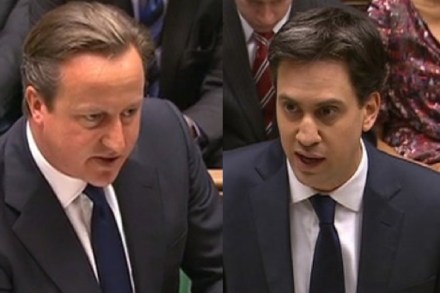Ed Miliband: Children behave better than MPs at PMQs
A rite of passage for any Opposition leader these days is to promise to make politics more decent and connected to people’s lives. One recent Opposition leader said this, for example: ‘And we need to change, and we will change, the way we behave. I’m fed up with the Punch and Judy politics of Westminster, the name calling, backbiting, point scoring, finger pointing.’ David Cameron, who said this in his leadership acceptance speech in 2005, now has a team of MPs who help heckle Labour in the Commons during Prime Minister’s Questions. This was mainly in response to Labour being much better at heckling, with Ed Balls gesticulating and sledging



















